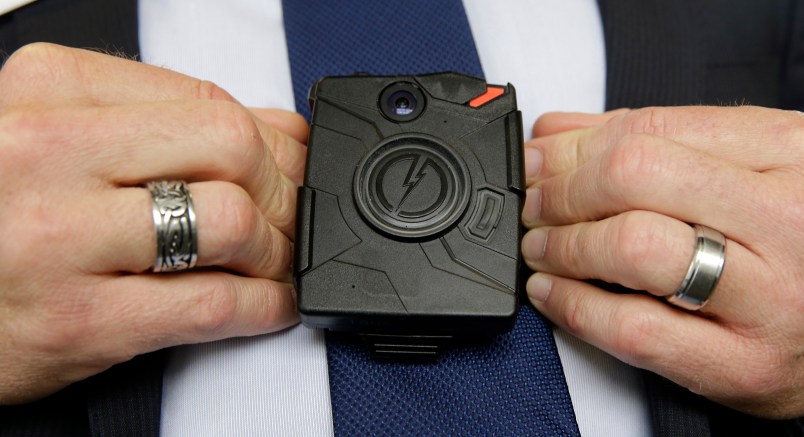LONDON (AP) — A Cambridge University study of British and U.S. police shows a 93 percent decrease in the number of complaints made against officers when they are using body cameras — pivotal findings that suggest the simple devices could reduce conflicts between police and the public.
The idea behind the study is simple: people who are being observed — and know it — change their behavior. Researchers suggested that cameras encourage best behavior on the part of both the officers and the public.
“Everyone is recording the police except themselves,” said Barak Ariel, a criminologist from Cambridge University who led the research. “Now we have something from the officer’s point of view from the very beginning of the interaction.”
The study says using body cameras could lead to a “sea change in modern policing.”
Such conflicts were underscored in Britain in August, when a black former soccer star, Dalian Atkinson, died after being shot with a police Taser.
Michael Naughton, an associate professor at the University of Bristol Law School, embraced the main finding of the study, arguing that the technology has long existed to record all interactions between the police and the public.
“One wonders why such an initiative has not already been introduced,” he said via email. “It would allay fears (and the reality) of police misconduct and abuse. It would enhance trust and confidence in the police. It really is a no-brainer that body cameras should be embraced and harnessed without further delay.”
In Britain, some 45 territorial police forces are still rolling out such equipment among staff, a survey by Press Association said. Ariel said most large police forces in the United States use such cameras, but thousands of smaller forces still do not.
The study involved West Midlands Police, West Yorkshire Police, Cambridgeshire Constabulary, Police Service of Northern Ireland and police departments in the California cities of Ventura and Rialto. Some 2,000 officers and 1.4 million working hours were studied over a year.
In some cases, complaints went down to zero.
“We are about to face a turning point,” Ariel said. “I think in 25 years all officers will be using a camera.”
Copyright 2016 The Associated Press. All rights reserved. This material may not be published, broadcast, rewritten or redistributed.







In 25 years? I hope its within 5 in the US. They should federally fund this somehow, or give huge incentives to states that do.
These are much needed. Reduces frivolous complaints against officers when the member of the public knows the officer didn’t do anything wrong and the video proves it. And more importantly, it keeps officers honest and weeds out bad policing.
You mean that if someone can see you being an asshole, and it will affect your job and income, you won’t act like an asshole. Who knew?